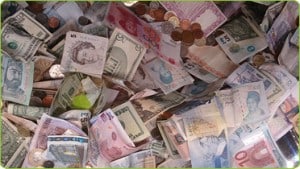 In my (all-too-frequent) immodest moments, I like to think that what I teach in my Ethics and Epistemology classes is priceless. My students think so too. Knowing the difference between a priori and a posteriori will make them exactly zero dollars they tell me.
In my (all-too-frequent) immodest moments, I like to think that what I teach in my Ethics and Epistemology classes is priceless. My students think so too. Knowing the difference between a priori and a posteriori will make them exactly zero dollars they tell me.
“Priceless” cuts both ways. Since they exist outside the market, priceless things include both the utterly worthless and the surpassingly valuable. In a capitalist society, priceless things are confusing — off the map. In a capitalist marketplace can one say with certainty the relative values of a kilowatt hour of electricity, a new iPad, and a house in the suburbs — but what do we do with the things we can’t price? What value do they have?
Michael Sandel notes that an ever-wider variety of things are for sale today. The birth of children: priceless, right? Nope. You can pay an Indian surrogate mother around $8,000 to carry a child to term. So how about nature? Again no, for around $10.50 per metric ton you can dump carbon dioxide into the atmosphere to your heart’s content. Fair play? Sadly no, NFL players look on each other as targets with dollar signs.
Sandel goes on to argue that what you take something like childbirth or nature was once priceless and assign it a monetary value, that thing is forever altered:
When we decide that certain goods may be bought and sold, we decide, at least implicitly, that it is appropriate to treat them as commodities, as instruments of profit and use. But not all goods are properly valued in this way.
Someone might try to sell, for instance, a Medal of Honor or Noble Prize. The awards are made of gold and certainly worth something. What the awards mean gets lost in the transaction. The price is incommensurable with the what the prize means. Money just can’t capture it.
What exactly can be given a market value without distortion and how do we know? The market can sell just about anything, even things it shouldn’t. Too many times in history human beings have been commercial objects. I’ve always thought that the phrase “human resources” has an eerie ring to it. While it’s true that humans are resources for corporations, we’re not just that. Nor are we only consumers. The market should work for people, though it often turns out the other way around. The danger is not the market itself but letting the market value the priceless. Markets simply set a price according to forces of supply and demand. They do not tell us what should be sold, only what people will buy. Is this the only real value?
Philosophy class is priceless; so is prayer. But what are they really worth? If you look only to dollars and cents, you will never know.


